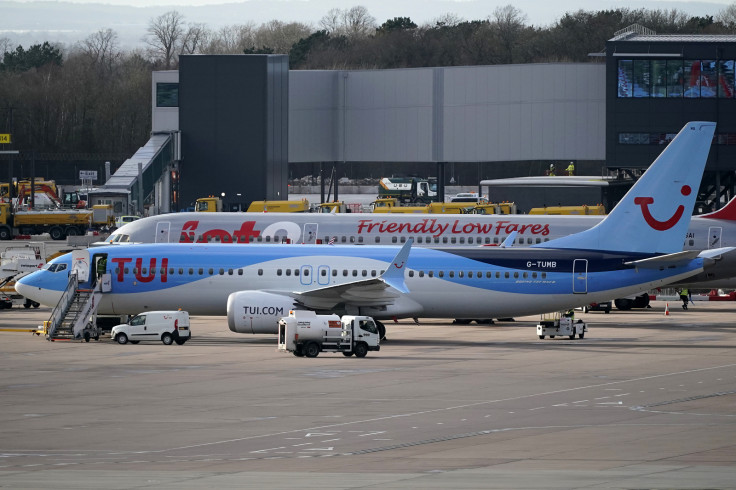Airbus is making life easy for Boeing
Airbus is falling short of its delivery targets, its profit and cash flow are under pressure, and customers are becoming fed up.
The two fatal Boeing (NYSE:BA) 737 MAX crashes — and the subsequent grounding of that model — have captured most of the headlines in the aviation world over the past year. Indeed, Boeing has suffered a big setback to its reputation and financial performance.
However, Airbus (NASDAQOTH:EADSY) has been unable to capitalize on Boeing's woes for the most part. That's because the European aircraft manufacturer's dreadful operational performance has continued in 2019. Airbus is falling short of its delivery targets, its profit and cash flow are under pressure, and customers are becoming fed up.
Airbus' subpar performance continues in 2019
Last week, Airbus reported its financial results for the first half of 2019, and the numbers weren't pretty. On the bright side, the company posted an adjusted operating profit of 2.5 billion euros ($2.8 billion) in the first half of the year, more than double the profit it generated a year earlier. This compared favorably to Boeing's $1.8 billion operating loss over the same period.
That said, Boeing took a $5.6 billion one-time charge last quarter related to the compensation it expects to provide to airlines with grounded 737 MAX jets. Without that charge, Boeing would have posted an operating profit of around $3.8 billion in the first half of the year, eclipsing Airbus' results despite not delivering its most popular product for most of that period.
Moreover, Airbus burned 4 billion euros ($4.5 billion) of cash in the first half of 2019 due to the inefficiency of its production system. (Airbus tends to have extremely seasonal cash flow.) Boeing generated $1.3 billion of free cash flow over the same period of time, notwithstanding a huge headwind from being unable to deliver the 737 MAX jets it has been building since March.

It all comes back to production problems
It's not hard to diagnose the cause of Airbus' subpar profitability and dreadful cash flow. The company routinely struggles to meet its production commitments.
Airbus delivered 389 commercial jets in the first half of 2019. It would have to deliver about 500 jets in the second half of the year to reach its full-year target of 880 to 890 deliveries. This may be achievable; nearly 500 of Airbus' 800 deliveries in 2018 came in the second half of the year. However, the sharp volatility in delivery volume throughout the year depresses Airbus' profitability and is the root cause of its erratic cash flow.
Even if Airbus does achieve its target of 880 to 890 deliveries this year, it still won't be able to meet the delivery schedules promised to customers. Numerous A321neo buyers have stated that they are facing significant delays in receiving their orders. JetBlue Airways recently confirmed that Airbus will only be able to deliver six of the 13 A321neos the carrier was scheduled to receive in 2019. The airline expects Airbus to fall further behind in 2020.
Delays at suppliers have caused some of this disruption. However, design changes made by Airbus have been the main impediment to keeping A321neo production on track. With Airbus in the midst of ramping up A320-family production to an unprecedented rate of 60 per month — and hoping to increase that rate to 65 per month by 2022 — it's a safe bet that getting jets to customers on time will remain a big challenge for the foreseeable future.
Airbus' incompetence is helping Boeing
In recent years, Airbus has never had trouble selling its A320-family jets. Producing enough to meet demand has been the real challenge. The jet maker's massive order backlog has meant that Boeing never had to worry about a mass exodus of customers following the 737 MAX grounding. Airlines that need new planes anytime soon didn't have the option of switching all of their orders to Airbus.
Yet Airbus has made things even easier for Boeing. Most notably, the interminable A321neo delays paved the way for British Airways parent International Airlines Group -- a longtime Airbus A320-family operator -- to sign a letter of intent for 200 Boeing 737 MAX jets in June. This was a huge win for the U.S. aerospace giant.
While this deal has not become a firm order yet, there seems to be hardly any risk that it will fall through. In fact, IAG CEO Willie Walsh recently said he wants to accelerate the airline group's 737 MAX delivery schedule, due in large part to his frustration with Airbus' lack of reliability.
Unless Airbus can fix its production system in a hurry, its financial performance will continue to suffer. Furthermore, it will keep alienating customers, helping Boeing to escape the crisis caused by the 737 MAX grounding with little long-term damage.
This article originally appeared in the Motley Fool.
Adam Levine-Weinberg owns shares of JBLU. The Motley Fool recommends JBLU. The Motley Fool has a disclosure policy.





